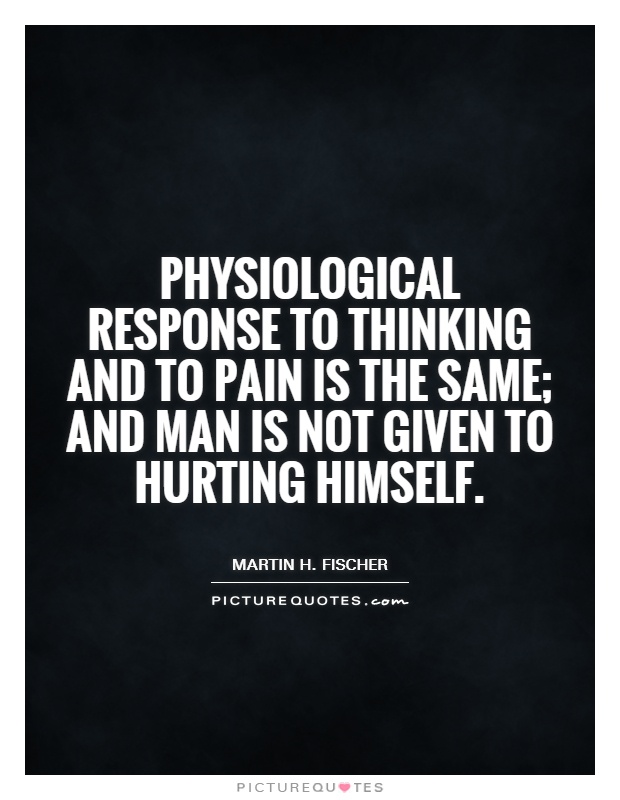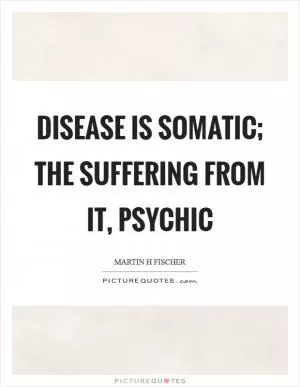Physiological response to thinking and to pain is the same; and man is not given to hurting himself

Physiological response to thinking and to pain is the same; and man is not given to hurting himself
Martin H. Fischer, a German-born American physician and author, once famously said, “Physiological response to thinking and to pain is the same; and man is not given to hurting himself.” This statement speaks to the interconnectedness of the mind and body, and the profound impact that our thoughts and emotions can have on our physical well-being.When we think about something that causes us stress, fear, or anxiety, our bodies react in a similar way to when we experience physical pain. This is because our brains cannot always differentiate between real threats and perceived threats. The fight or flight response is triggered, releasing stress hormones like cortisol and adrenaline into our bloodstream, which can lead to increased heart rate, elevated blood pressure, and muscle tension. These physiological responses are meant to prepare us to deal with a threat, whether it be physical or psychological.
However, the idea that “man is not given to hurting himself” is a complex one. While it is true that most people do not intentionally harm themselves, it is also true that our thoughts and emotions can have a profound impact on our physical health. Chronic stress, anxiety, and negative thinking patterns can contribute to a host of health problems, including heart disease, digestive issues, and weakened immune function. In this sense, our mental and emotional well-being can directly impact our physical health.
Fischer’s statement also speaks to the importance of self-care and self-awareness. By recognizing the ways in which our thoughts and emotions can impact our physical health, we can take steps to cultivate a more positive mindset and reduce stress in our lives. This may involve practices like mindfulness meditation, therapy, or simply taking time to engage in activities that bring us joy and relaxation.












 Friendship Quotes
Friendship Quotes Love Quotes
Love Quotes Life Quotes
Life Quotes Funny Quotes
Funny Quotes Motivational Quotes
Motivational Quotes Inspirational Quotes
Inspirational Quotes